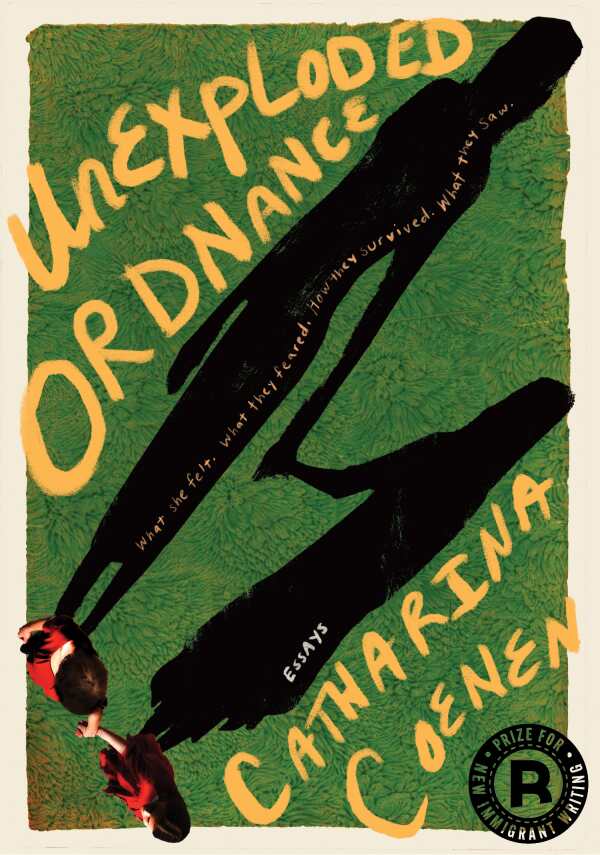Unexploded Ordnance
Catharina Coenen’s memoir-in-essays Unexploded Ordnance draws on history, biology, philosophy, and linguistics to explore social trauma and unspoken, inherited memories.
A German immigrant, Coenen moved to the United States for graduate work. She taught college biology in Pennsylvania, too. From these vantage points, she revisits unanswered questions about her family during World War II. Through archival letters, conversations with her mother, and imaginative reconstructions of her grandmother’s experiences, she pieces together her family’s losses during the 1940 firebombings of German cities, revealing accounts that “remain unwritten, […] unpublished, or largely unrecognized.”
The collection is organized around German words. Terms like “Blindgänger” (unexploded bomb), “Schweigen” (to be silent), and “Übersetzung” (translation) become metaphors through which Coenen interrogates ancestral silence and the possibility of renewal. Her botanist lens deepens the narrative; passages on epigenetics, for example, illuminate how trauma “can lock some DNA away for a generation or two or three.” This fusion of disciplines yields resonant storytelling that moves between intimate details and sweeping observations.
The memoir pivots around a compelling moral inquiry: can the suffering endured by Germans during World War II be acknowledged without eclipsing or excusing the immense suffering that Germany inflicted? Coenen approaches this tension with honesty and care, situating her family’s experiences of bombings, dislocation, and hunger within the larger context of collective guilt and responsibility. Her grandmother’s survival, her mother’s silences, and her grandfather’s wartime complicity all become part of a nuanced story that recognizes pain without erasing accountability. This duality grounds the book with emotional and ethical weight, showing that trauma doesn’t demand closure, but the courage to remember, speak, and face how buried histories shape the present.
Unexploded Ordnance is a lyrical excavation of silence, memory, and the hidden traumas that echo across generations.
Reviewed by
Brooke Shannon
Disclosure: This article is not an endorsement, but a review. The publisher of this book provided free copies of the book to have their book reviewed by a professional reviewer. No fee was paid by the publisher for this review. Foreword Reviews only recommends books that we love. Foreword Magazine, Inc. is disclosing this in accordance with the Federal Trade Commission’s 16 CFR, Part 255.

